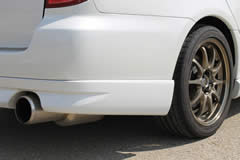Methods For Improve Fuel Efficiency In Cars - Vol.183
With rising fuel costs affecting economies as well as pocketbooks around the world, finding ways to improve fuel economy in automobiles is one way of helping save a little extra money here and there. The better and more efficiently an engine runs, the less gas it will waste while driving. There are a few tricks to improving fuel efficiency, even in older engines, that can add up at the pump over the course of weeks and months.

One of the biggest things to do to keep an engine running smoothly and efficiently is to have the engine maintained regularly. Not waiting until the check engine light illuminates your dash board will not only help to keep your engine running efficiently, it will help to keep it running longer. Making sure that the oil is changed regularly with the proper, recommended grade of oil is key to helping the engine operate as optimally as possible. Regularly changing on sparkplugs, checking on oxygen sensors and generally keeping the engine well-tuned will help to improve fuel efficiency for the car. Depending on the repairs done, fuel efficiency can be boosted by anywhere from five to fifty percent. Those are results that can be seen and felt immediately.
Another method for improving the fuel efficiency of the car is to keep the fuel system clean. Fuel cleaners and additives can help to keep the working parts of the engine clean and clear of the buildup that can occur with the combustion of fuels on the interior of the engine. Sooty buildup--a common by-product of the combustion of hydrocarbon fuels--can prevent accumulation of materials on fuel injectors, sparkplugs and cylinder parts that will hinder the engine's ability to work well and efficiently. Optimally, a hydrocarbon-based solvent would work the best as it will help to clear out the carbon-based residues that are left in the wake of burning gasoline or diesel. Fuel additives that absorb water and help to move it out of the fuel system will also help to keep the engine running smoothly and as efficiently as possible.
Keeping the tires inflated to the proper internal air pressure will also help an engine run more efficiently. The reason for this is simple. As the tire's pressure increases, the pressure pushes out on the outer ring of the tire. When this occurs, less of the tire is in contact with the road. Having less of the rubber pressing against the pavement will actually help reduce the friction incurred between the tires and the road. With less friction pressure to push against, the engine does not have to work as hard to move the car forward as it would with under-inflated tires. While some manufacturers and mechanics recommend using pure nitrogen in the tires, there is no real proof that this will help to boost fuel economy in the engine. Oxygen, which is 22% of the air we breathe and put into our tires, can react with rubber and help to weaken the interior structure of the tire in theory.
One thing that does not improve the fuel economy in a car is replacement of the air filter, at least on modern cars. The performance of the engine will improve, but not the fuel efficiency. Acceleration can be improved with a new air filter, and the engine will not have to work as hard to draw in clean air to combine with the fuel inside the engine cylinders, but this does not translate to improvement in fuel economy on modern cars. Older engines that still feature carburetors, on the other hand, will see a slight increase in both performance as well as fuel efficiency with a newer, cleaner air filter.
Following these easy, cheap steps to maintain a car's engine will translate into savings at the pump as well as lengthening the lifespan of the engine and helping to prevent costly breakdowns before they happen.